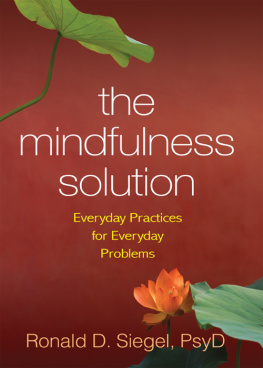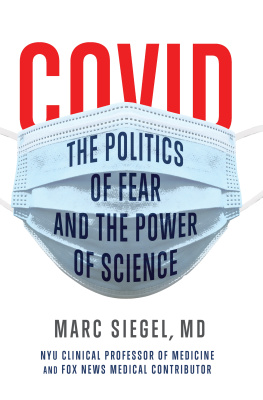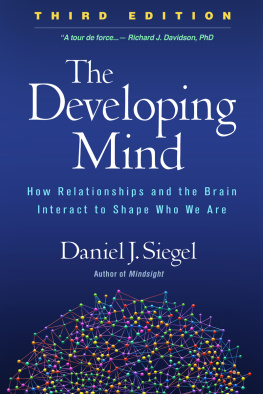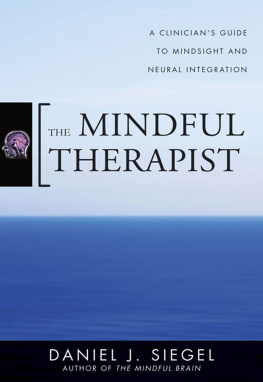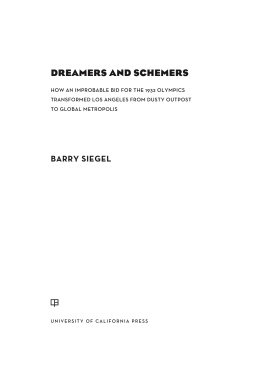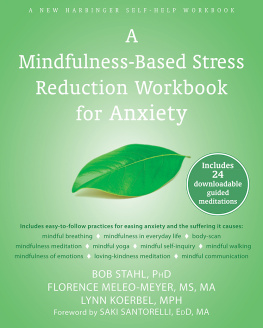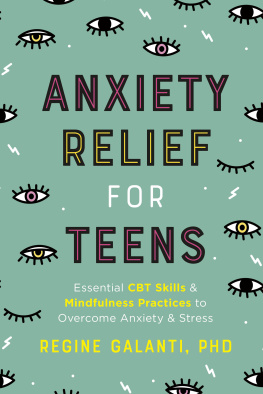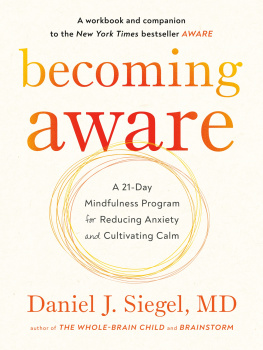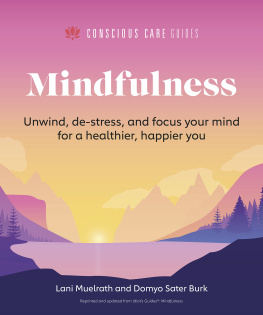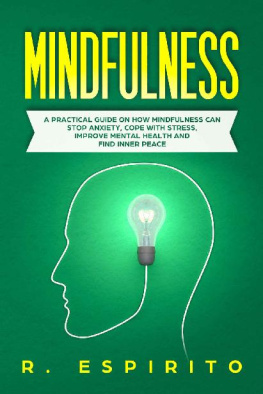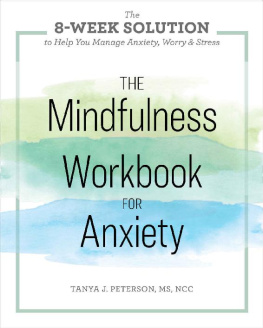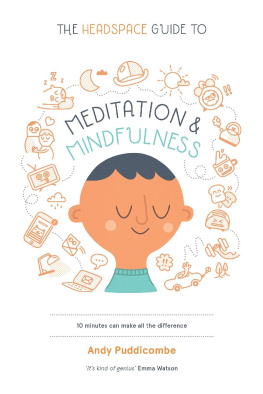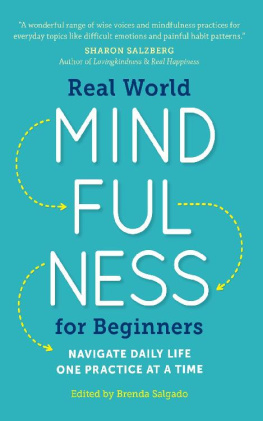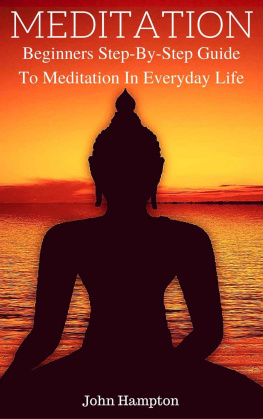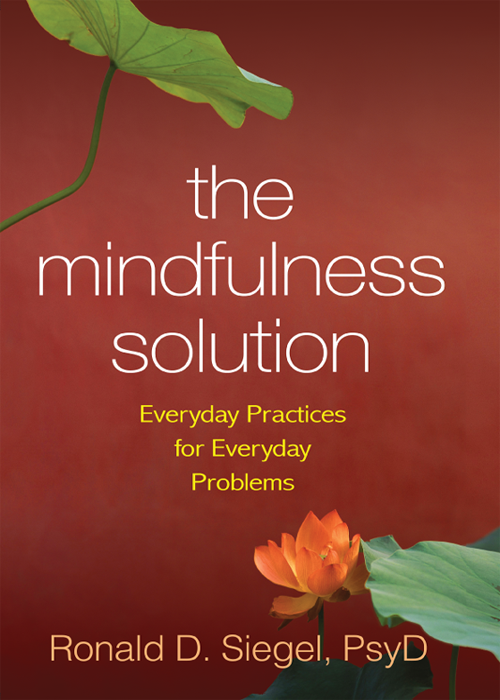RONALD D. SIEGEL
2010 Ronald D. Siegel
Published by The Guilford Press
A Division of Guilford Publications, Inc.
72 Spring Street, New York, NY 10012
www.guilford.com
All rights reserved
2010 Epub Edition ISBN: 9781606234570
The information in this volume is not intended as a substitute for consultation with healthcare professionals. Each individuals health concerns should be evaluated by a qualified professional.
Except as indicated, no part of this book may be reproduced, translated, stored in a retrieval system, or transmitted, in any form or by any means, electronic, mechanical, photocopying, microfilming, recording, or otherwise, without written permission from the publisher.
Last digit is print number: 9 8 7 6 5 4 3 2 1
LIMITED PHOTOCOPY LICENSE
The publisher grants to individual purchasers of this book nonassignable permission to reproduce the blank worksheets and exercises. This license is limited to you, the individual purchaser, for personal use or use with individual clients. This license does not grant the right to reproduce these materials for resale, redistribution, electronic display, or any other purposes (including but not limited to books, pamphlets, articles, video-or audiotapes, blogs, file-sharing sites, Internet or intranet sites, and handouts or slides for lectures, workshops, webinars, or therapy groups, whether or not a fee is charged). Permission to reproduce these materials for these and any other purposes must be obtained in writing from the Permissions Department of Guilford Publications.
Library of Congress Cataloging-in-Publication Data
Siegel, Ronald D.
The mindfulness solution : everyday practices for everyday problems / Ronald D. Siegel.
p. cm.
Includes bibliographical references and index.
ISBN 978-1-60623-294-1 (pbk. : alk. paper)
ISBN 978-1-60623-456-3 (hardcover : alk. paper)
1. Meditation. 2. MeditationBuddhism. 3. Mental healing. 4. Self-help techniques. I. Title.
BF637.M4S54 2010
158.12dc22
2009031139
The names, characteristics, and details of individuals described and quoted in this book have been changed to protect their privacy.

Contents
PART I
Why Mindfulness Matters
PART II
Everyday Practices for Unruly Minds,
Bodies, and Relationships
WHEN YOU NEED MORE HELP:
HOW TO FIND A THERAPIST

W hen I first took up mindfulness practice in college, I was impressed. Learning to attend to and accept the present momentto really stop and smell the roseshad immediate benefits. Worries about getting good grades, finding a girlfriend, and being cool began falling away. Boredom practically disappeared. I imagined that after a few years of practice Id be free of hurt, pain, and worryblissfully enjoying the rest of my life.
Im sorry to report that things didnt quite turn out that way. I soon learned that mindfulness practice isnt a very good narcoticit doesnt really make pain disappear. But dont put this book down yet. mindfulness practice actually offers something even more valuable: instead of anesthetizing us, it helps us see more clearly the habits of our minds that create unnecessary sufferingand offers a way to change them. In my own practice, it didnt take long to see how my mind was constantly drawn to fantasize about the next party and dread the next research paper, rarely appreciating the moment. I also noticed how thoughts about being smart or dumb, attractive or ugly, good or bad, a success or failure, were my constant companion, coloring my moods and keeping me stressed. I realized too that despite my continued efforts, the highs that came from getting a good grade, making out with a new flame, or winning a tennis match never lasted very longI soon found myself chasing the next victory or comfort.
Luckily, along with showing me how these mental habits were making me unhappy, mindfulness practice offered an alternativea way to live my life with more easeless concerned with chasing after highs and trying to avoid lows. I could use the practice to notice the trees as I walked to class, taste my food in the dining hall, and connect more intimately with my friends. I could watch thoughts and feelings come and go without getting so caught up in them. Paying attention to the present moment in this way began to transform my relationship to lifes ups and downs. Even difficult momentslike when my girlfriend moved away to be with the other guyfelt more manageable as I learned how to attend to rather than escape from my anger, sadness, and vulnerability.

